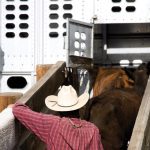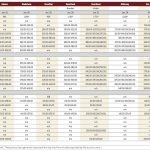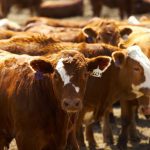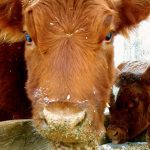
Tag Archives Beef Cattle

Canadian cattle herd reaches lowest level since 1989
Cattle weights supporting decline in production

Rising temperatures mean rising cattle numbers at auction marts
Temperature spike causes muddy pens, early breakup and animals thrown off feed

Total US cattle herd drops to lowest level since 1951 – USDA
Easing dryness could encourage ranchers to begin rebuilding beef herds

First-of-its-kind cattle methane limiter approved for Canada
Enteric methane emissions from cattle contributes 3.3 per cent of Canada’s total GHG emissions

Hormones benefit young calves
Study demonstrates performance of growth implants on suckling calves

Hormone implants offer clear advantage
In addition to helping the bottom line, hormone implants have a big environmental upside

Beef marks GHG drop: report
Assessment reveals industry has reduced emissions by 15 per cent

Feed weekly outlook: Several factors weighing on prices
Warm weather means less feed needed, easier movement says analyst

Brazilian state launches mandatory tracking of cattle to stop deforestation
The state government plans to track all 24 million cattle in the Para region by the end of 2026

Beef Producers eyes wild game surveillance amid bovine TB testing
Preliminary results from testing not ‘overly concerning,’ says beef group




